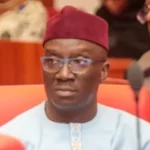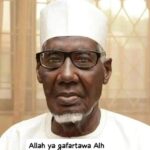The Malian crisis has since January 2012 been on the front- burner. It is a crisis with complex dynamics that is impacting negatively on the socio- economic and political life of the people. As efforts towards resolving the crisis continue to evolve with rapidity, the need for the active involvement of all actors in forging a multi-stakeholder framework for resolving the crisis is very crucial. For the Malian civil society, this need for involvement is especially felt because of the highly disruptive ideas of certain actors who have been posing as civil society activist since the onset of the crisis. It is in order to address the specific issue of seeming division within civil society as well as to define a coherent strategy for civil society involvement in the future resolution of the crisis that a Fact Finding Mission to Mali was deployed by WACSOF and CODESRIA from the 13th to the 16th of February 2013.
The Mission which I was privileged to be part of had extensive consultations with the following pertinent authorities and groups: – Civil Society Coalitions and Networks, the Parliamentary Select Committee on Security and Defence, the Islamic Council, the National Human Rights Commission and Human Rights Organisations, the National Democratic Institute, the ECOWAS Special Representation in Mali, The ECOWAS National Unit in the Foreign Ministry, the United Nations Human Rights Monitoring Agency and the Faculty of Law and Political Science, Bamako University
There is unanimity among all interlocutors that the restoration of the territorial integrity of the country is of utmost importance and there is no support for the Azawad Republic. The general opinion is that secession occurred because there was “vide de pouvoir” or absence of governance under the then Toumani Toure regime. It was pointed out that while Niger Republic disarmed the Tuareg ex-combatants coming in from Libya while President Toure welcomed them into the country with their arms in a context in which the Malian armed forces had withdrawn from the Northern territories since the Accord of 1996. The Parliamentary Select Committee on Security and Defence told us for example that they had gone to the Northern territories in November 2011 and discussed with the returnees, most of whom had never visited Mali but had parents or grandparents of Malian origin. They explained they were shocked at how well armed they were and drew the attention of the President on the imperative of action before the imminent rebellion but the President refused to do anything. A month after their report, Tuareg rebels started attacking and taking over the area. Initially, the Tuareg nationalist movement, MNLA took the lead but they were soon displaced by Islamic insurgents from Al Qaida in the Islamic Maghreb (AQMI), the Movement for Unity and Jihad in West Africa (MUJAO) and Ansar al Dine movements who imposed strict Sharia laws on a part of the country that had hitherto been secular.
Almost all the interlocutors we met had very harsh words for the Tuaregs and made two arguments. The first is that the Tuaregs are less than 10% of the population of the North and only a tiny percentage of that 10% was engaged in the insurgency. The Tuareg insurgency we were told has no legitimacy. In the University, we were directly accused of being manipulated by Tuareg propagandist because we had mentioned in our concept paper that there is a long history of marginalisation of the Tuaregs in Mali. The second argument was that since the 1992 Accord, all the resources available for development had been devoted to the North thereby depriving the rest of the country of the benefits of development. The worst element of this policy, it was said, was that the Tuareg elite insisted on carrying out all the development contracts, collected the monies and refused to do the work and armed themselves for the next blackmail of the state. There was also anger that most of the Tuareg officers integrated into the army high command without proper qualifications and Tuareg political leaders in Government all abandoned the state and went to join their brethren in the rebellion. The overwhelming feeling was that political negotiations with the Tuaregs should end a military victory is the only way forward.
The second overwhelming opinion I heard was that for two decades, Mali lived a lie pretending it had a functional democracy while the whole system was a facade in which the “democratic state” had abdicated all political and social responsibility and the political class was focused on looting state resources. Indeed, it was clear that the coup d’état of 22nd March 2012 was timed to stop the presidential elections that were to hold a month later. It started as a mutiny by drunken middle ranking army officers at the Kati barracks in the outskirts of Bamako demanding for more arms and resources to fight the Tuareg rebellion in the north. They felt that neither President Amadou Toumani Toure nor the Defence Minister, Saddio Gassama was supporting them. Between January and March 2012, the Malian army had been defeated by Tuareg rebels and forced to withdraw from all major towns and cities in northern Mali. Captain Amadou Sanogo, the coup leader, tried to use the argument of the absence of governance to establish his rule. The whole world however immediately and unequivocally condemned the coup d’état and called for an immediate return of the country to the constitutional and democratically elected government. ECOWAS played an immediate role in making it clear to the Captain that he would not be allowed to impose military rule.
Over the past two decades, Mali’s security landscape has been characterised by open banditry and trans-border criminality. Mali is a huge country with 1, 241 328 km² and a frontier of 7240 km with seven countries – Algeria, Niger, Burkina Faso, Côte d’Ivoire, Guinea, Senegal and Mauritania. Governing such a country is obviously a huge challenge. Current events have a long history. In 1970, the late Libyan leader, Col Gaddafi called on all Tuaregs in Mali and Niger to move to Libya as citizens and many of them took up the offer. Their children and grand children had joined the Libyan army and returned to the country after the demise of their hero. They found an un-governed territory from which the Malian military had withdrawn. As nature abhors vacuum, armed combatants, traffickers and terrorists had taken over control. Taking over was easy
 Join Daily Trust WhatsApp Community For Quick Access To News and Happenings Around You.
Join Daily Trust WhatsApp Community For Quick Access To News and Happenings Around You.


